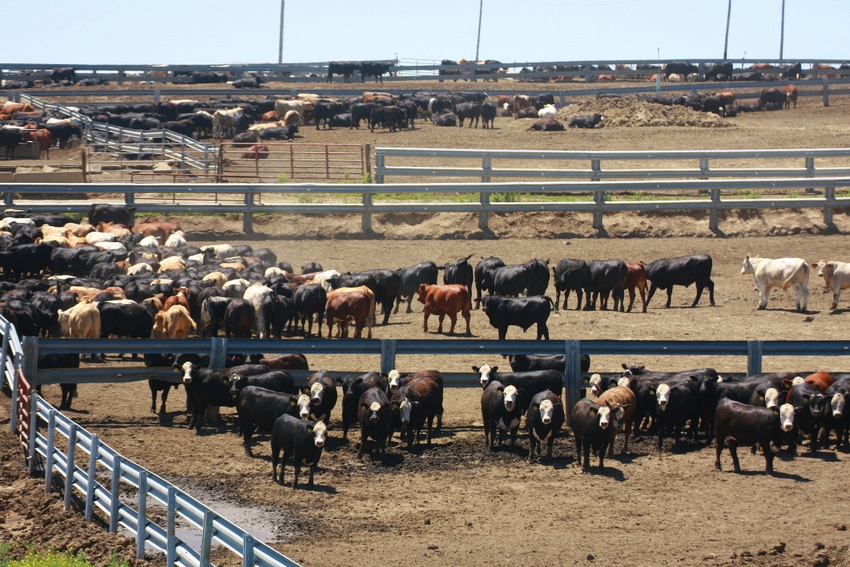FDA approves first drug for ammonia gas reduction from beef cattle manure
Agency approves drug for first time that reduces gas emissions from an animal or its waste.
November 6, 2018

Beef producers may soon have a new tool to reduce ammonia gas emissions from feedlot waste after the U.S. Food & Drug Administration announced Nov. 6 the approval of Experior (lubabegron Type A medicated article), a beta-adrenergic agonist/antagonist drug that, when fed to beef cattle under specific conditions, results in less ammonia gas released as a byproduct of their waste.
FDA said this approval is the first time the agency has approved a drug that reduces gas emissions from an animal or its waste.
Ammonia gas emissions can come from many sources, including the manure of beef cattle. Ammonia gas emissions are a concern because they have been implicated in atmospheric haze and noxious odors. High concentrations of ammonia can cause irritation of the eyes, nose and throat in both people and animals, FDA said.
Additionally, FDA said ammonia gases can contribute to eutrophication, in which bodies of water become enriched with excess nutrients, especially nitrogen and phosphorous. These nutrients reach bodies of water primarily through runoff from various sources, but nitrogen in the form of ammonia and related compounds can end up in bodies of water as a result of wind and rain. Therefore, FDA said reducing ammonia gas reasonably may be expected to provide some benefit to the environment.
FDA said studies of lubabegron indicated that the product partially reduces ammonia gas emissions from manure from an individual animal or a pen of animals in semi-controlled conditions in enclosed housing. The studies did not measure ammonia gas emissions on a herd or farm scale and could not account for other factors that may affect ammonia gas emissions, such as wind speed and direction, rainfall, weather, input from other nitrogen sources and manure management, the agency reported. Therefore, extrapolation to the herd, farm or larger scale could not be accurately or reliably predicted.
FDA noted that evidence gathered in the studies did not demonstrate any health benefit or performance advantage in beef cattle, such as weight gain or feed efficiency, as a result of receiving lubabegron, although no negative effects were noted.
Experior is administered in feed to beef steers and heifers fed in confinement for slaughter during the last 14-91 days on feed. Multiple studies indicated that the product is safe when administered to beef cattle. Meat from beef cattle treated with the product is safe to eat, and no withdrawal period is required when beef cattle are dosed under the FDA-approved conditions described on the label.
According to the Freedom of Information Act summary posted on FDA's Center for Veterinary Medicine website, Experior will have an over-the-counter marketing status. As a Type A medicated article, it will need to be blended into a Type B or Type C medicated feed before use in beef cattle rations.
FDA said Elanco is the sponsor of Experior.
You May Also Like



